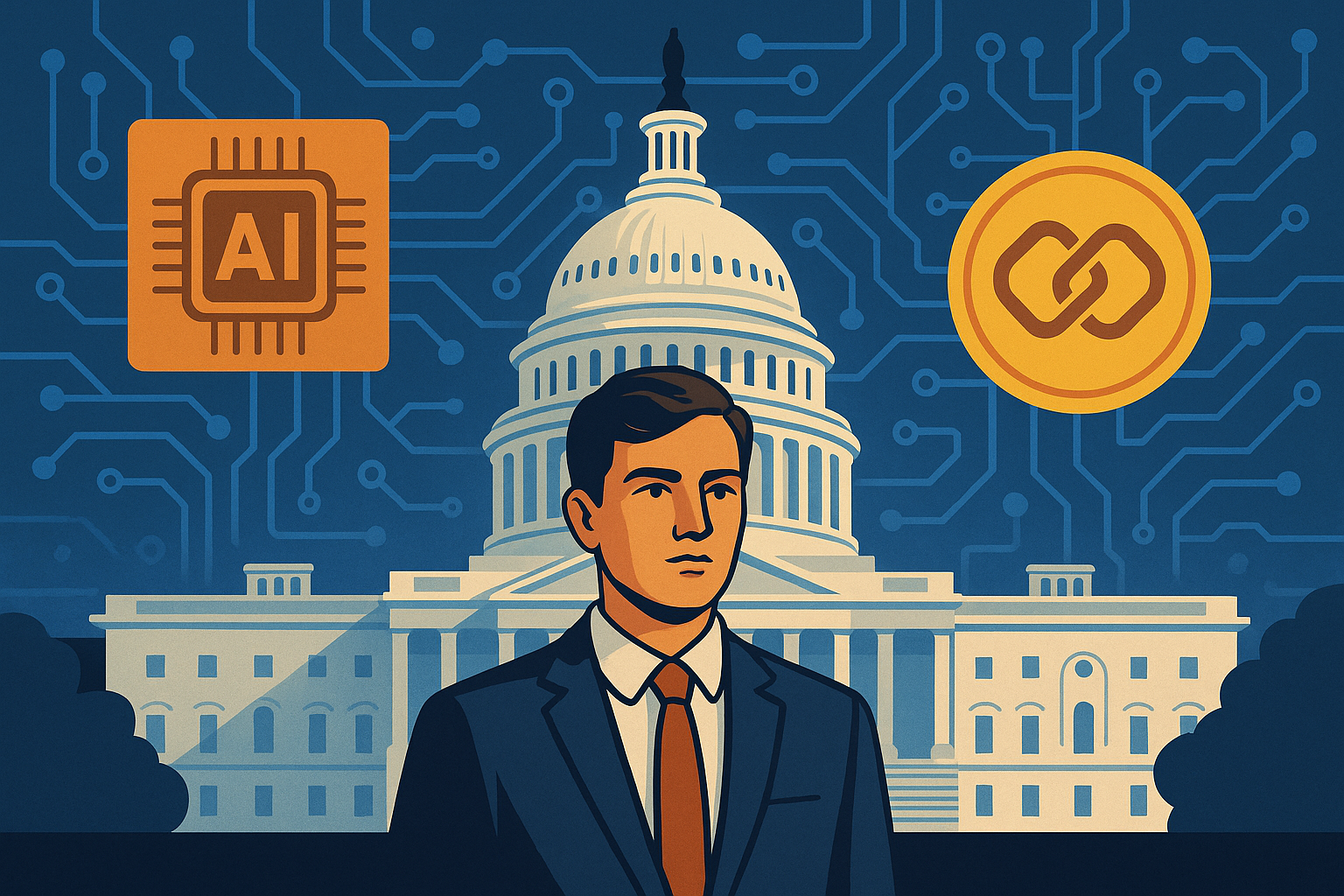Amid a wave of tech-driven policy reform, a 23-year-old AI and blockchain engineer is now at the center of Washington’s most ambitious digital transformation initiative. The Department of Government Efficiency (DOGE)—a brainchild supported by Elon Musk and structured as a public-private venture—is pushing to integrate artificial intelligence and blockchain infrastructure into core federal systems.
This rapid digitization effort is not just administrative—it reflects a wider shift toward tech-enabled governance, with potential to ripple across sectors from cybersecurity to cloud services, identity management, and public procurement. For investors, this moment signals a maturing of the gov-tech sector, where legacy systems are finally being challenged by real-time analytics, smart contracts, and automated compliance.
Washington’s Digital Revolution Is Now in Motion
Once an obscure Nebraska engineering student, the young lead behind DOGE—now a rising figure in federal digital strategy—is leveraging AI models and blockchain platforms to tighten procurement audits, streamline welfare disbursement, and reduce bureaucratic redundancy. According to reports from AInvest and Tech Policy Forum, early pilot programs in the Department of Veterans Affairs and the GSA (General Services Administration) have already cut manual processing time by 38%.
What makes this initiative different is its scale and backing. Musk’s interest reportedly stems from his wider push to modernize public systems, an idea he’s floated on multiple X (formerly Twitter) spaces over the past year. The DOGE model includes partnerships with AI startups, blockchain ledger platforms, and academic researchers focused on digital ethics and optimization.
With billions of dollars flowing through inefficient federal systems annually, analysts argue that even a 10% operational improvement through digital optimization could unlock tens of billions in savings—capital that could be redirected toward innovation or infrastructure.
Why This Matters for Investors
The convergence of artificial intelligence, blockchain, and government policy represents one of the most significant yet underpriced trends in public-sector tech. Key developments that investors should track:
- Public sector tech is going mainstream. McKinsey estimates that global gov-tech spending will exceed $1.3 trillion by 2030, driven by cybersecurity demands, AI-powered decision systems, and digital service delivery.
- AI-first procurement models are gaining ground. From AI-enhanced fraud detection to predictive analytics for budget forecasting, the U.S. federal system is becoming a major customer of next-gen technologies.
- Regulatory tech (RegTech) is emerging as a pillar. With increased scrutiny around AI ethics and algorithmic accountability, blockchain-based transparency tools are gaining favor in legislative and compliance workflows.
Furthermore, companies that can align with federal IT modernization goals—while navigating compliance requirements—may unlock long-term revenue contracts with high switching costs.
Future Trends to Watch
1. Expansion of Smart Contracts in Public Infrastructure
Expect blockchain-based contracts in infrastructure, logistics, and defense to grow. These systems minimize fraud and enforce milestones automatically—a game-changer for large-scale public works.
2. AI-Driven Bureaucracy May Shape Global Norms
With the U.S. leading a real-world pilot of AI-powered governance, other countries may follow. Investors should watch for international alliances or tech transfer opportunities in Europe, India, and Southeast Asia.
3. Increased Oversight May Slow, Not Stop, Adoption
As AI use grows in sensitive government systems, expect Congressional hearings, watchdog investigations, and evolving regulatory frameworks. Companies that proactively invest in ethical AI frameworks may gain a competitive edge.
Key Investment Insight
Investors looking to tap into this movement should consider firms at the intersection of AI, blockchain, and government compliance tools. Promising areas include:
- AI contract analysis and fraud detection firms (e.g., Palantir Technologies, C3.ai)
- Permissioned blockchain providers with robust enterprise-grade offerings (e.g., Hedera, Hyperledger ecosystem)
- Public sector cloud and identity verification services (e.g., Okta, ForgeRock, Oracle Government Cloud)
Early-stage private firms participating in federal innovation contracts—especially those listed on GSA Schedules or recipients of SBIR grants—may also be worth tracking.
With Washington embracing technology not just as a tool but as a core operating philosophy, a new wave of government tech investment is underway. For investors, the future of governance may no longer lie in policy—but in platform.
Stay ahead of the next wave of digitally powered sectors with MoneyNews.Today, your daily source for market-moving innovation, tech policy, and investment insight.





